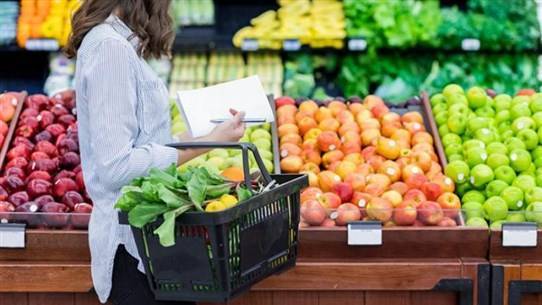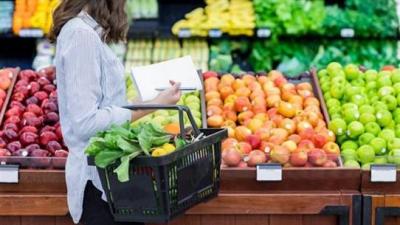Minister of Industry in the caretaker government, George Bouchikian, refuted all the negative claims regarding the threat posed by the failure to finalize the regulations for imported goods to food security. These products will be subjected to a customs duty of 10% for five years if a similar product is manufactured in Lebanon in quantities sufficient for local consumption, along with those classified as luxury goods. He confirmed in an interview with "Nidaa Al-Watan" that "there is not even a 1% risk to food security, as Lebanese food exports reach one billion dollars and are present in every country in the world. Won't that be enough for the local market?" He added, "I don't understand how there could be a threat to food security," responding to a question about the announcement from the Food Importers Syndicate that "the lack of issued regulations poses a threat to food security."
Regarding the meetings of the committees to prepare the regulations, he said: "There are committees that meet regularly to review the list of products that will be subject to the 10% customs duty, after which the subcommittee, which includes ministers of economy and their representatives, will convene to review the lists and make amendments." He considered that the delay in finalizing them is due to the need for further studies and scrutiny of those to be included in the regulations, as the goal is to protect consumers and the state as well as the industrial sector. Protecting local industry through these regulations will prevent foreign goods from flooding the local market, which would affect all local industries and sectors, even stimulating agricultural products. Every factory drives the economy of 16 sectors, and thus we will support industry, not imports."
He emphasized that "there are no customs duties on local industry, including raw materials imported for use in national production, and this is a significant incentive for the Lebanese economy." He pointed out that "national industries are currently thriving, and the majority of products available in supermarkets are Lebanese manufactured, while the upcoming regulations will prevent flooding the Lebanese market with foreign goods."
The situation before the financial crisis will not be the same afterward, as the local market now relies on a percentage of between 50% and 60% of national production, up from 10% previously, transforming the economy from a rentier to a productive one. The Lebanese consumer always preferred to buy imported products due to their trust in oversight and the quality of foreign goods. However, today, after the rise in prices of imported goods, particularly following the COVID-19 pandemic and the inflated shipping costs due to the outbreak of the Russian-Ukrainian war and the increase in the local dollar exchange rate, and given the quality of local production that measures up to well-known brands consumed in Lebanon, some factories have begun to emulate these brands and produce similar items at lower prices, especially food and cleaning products that flourished during the pandemic. "Even the countries we import from are now receiving exports from Lebanon, yet the local market is accustomed to importing from abroad," according to Bouchikian.
Given the quality of Lebanese products, he clarified that "Lebanese exports now reach 110 countries worldwide, and even all countries have come to use Lebanese industry while the local market relies on everything made in Lebanon."
Regarding the implications of raising the customs dollar rate from 1,515 lira to 15,000 lira (an increase of 10 times for products), Bouchikian stated that "all industrial and raw materials entering the country are exempt from customs duties—zero duty—for 21 sectors in national industry, and this exemption will continue to encourage and support national industry." He mentioned that "increasing the customs dollar will stimulate the economy and competition in local industry, and prices will decrease." However, he did not know when the implementation phase would begin.
Concerning the 3% fee, the Lebanese Industrialists Association raised the issue of customs beginning to collect a fixed fee of 3% on all industrial equipment and raw materials, considering this "a violation of Article 71 of the General Budget Law for 2022, which stipulates that the goods and industrial equipment exempt from the fixed fee should be determined by a decree issued by the Council of Ministers based on the proposal of the ministers of finance, industry, agriculture, and economy." The association expressed its firm rejection of that measure, but the issue was resolved, as the vice president of the Lebanese Industrialists Association, George Nasrawi, explained to "Nidaa Al-Watan," "There were communications between the ministers of industry and finance, and contact was made with the customs administration, and the measure to impose these fees was retracted." He pointed out that "this fixed fee was previously collected by the customs administration on industrial equipment and raw materials, but a decision was made to suspend it for three years to support local production. That period ended, and there was no further demand to cancel it, so the customs administration resumed collecting it due to the need for revenues. However, the conclusion of the communications that were held led to the suspension of that fee once again."




